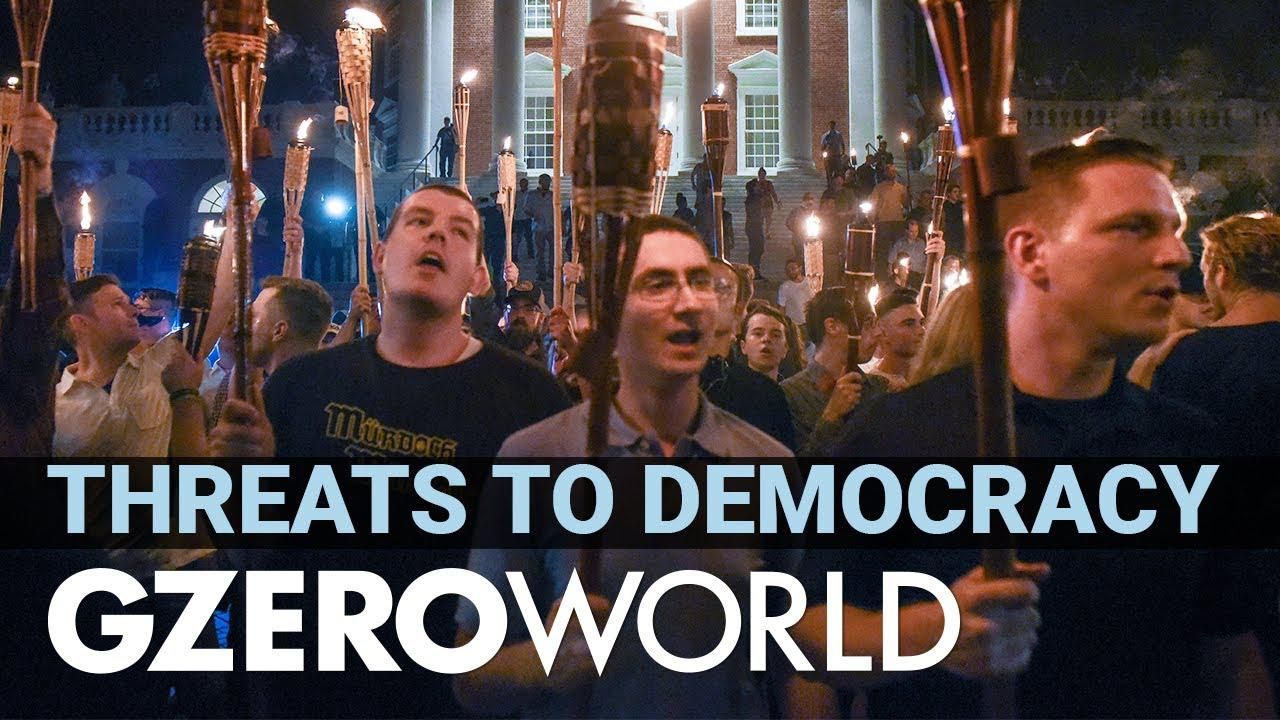GZERO World Clips
The two biggest threats for democracy in the 21st century

The Two Biggest Threats for Democracy in the 21st Century | GZERO World

For political scientist Yascha Mounk, the pandemic unleashed an ideological competition between democracies and autocracies, giving people some options.
But for democracy to remain strong in the 21st century, Mounk tells Ian Bremmer that "it's not enough to wax poetic about our beautiful values or to rely on the idea that somehow, our system has always proven strong in the past, so it's going to do so again." We need to double down on ensuring that the system delivers so citizens can keep saying that they'd rather be like the US or Germany than like Russia or China.
Still, democracy faces two big threats right now.
First, tribalism, or what Mounk calls "groupishness" — a major problem in diverse democracies. Societies fall apart when a majority of citizens prioritize the interests of their group over common national interests.
Second, extreme partisanship without strong institutions to manage it. The system, he says, must be resilient enough to stop factions from becoming so entrenched that they'd rather "blow up the system to gain power or to remain in power."
Watch the GZERO World episode: Authoritarians gone wild
Somewhere in the Donbas region, Ukrainian soldier Artem Bondarenko says he hasn’t slept through the night in months as he defends Eastern Ukraine.
In the latest episode of Vladimir Putin and Xi Jinping's hit wellness podcast This Authoritarian Life, we learn how positive communication patterns can break negative cycles in our relationships -- especially our relationships with Iran, Syria, Venezuela, and Cuba. #PUPPETREGIME
Israel indirectly warned Lebanon that it would strike its northern neighbor hard if the Iran-backed militia group Hezbollah gets involved in any future US-Iran conflict, two Lebanese officials told Reuters.